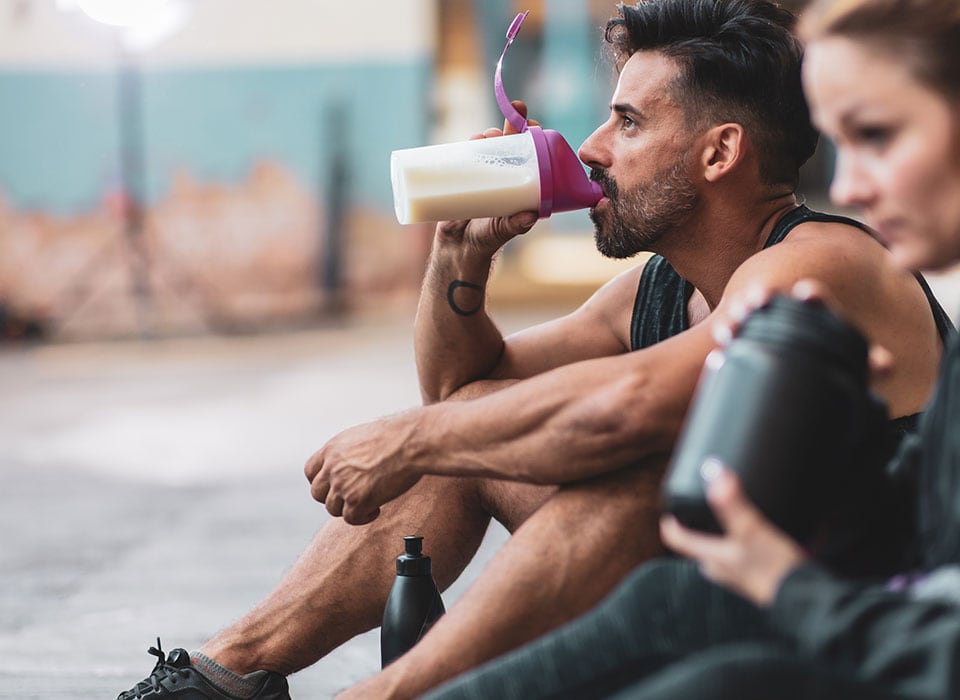Our bodies are like a fine tuned, efficiently crafted motor vehicle that allow us to perform at an incredibly high athletic level. But in order for our vehicle to run, we need to give it plenty of fuel. When trying to meet our fitness goals, exercising is only half the battle.
Eating the proper foods and hydrating at the right amount before, during, and after our training sessions is beyond essential for us to see fitness improvement. Nothing is more frustrating than consistently and intensely working out only to not realize the total benefits of our effort.
Before your workout
Michael Antonis, DO, RDMS, CAQ-SM, a sports and regenerative medicine physician states, “Finding that sweet spot of just enough food before a workout so you don’t feel nauseous but not too small a caloric intake where you feel weak can be difficult, but you should eat before exercising to maximize your effort. Without any calorie intake, your body’s glucose levels will be depleted very quickly.”
If your glucose levels are low, you’ll most likely feel weak and tired and will want to call it quits and go back to bed.
In order to avoid that sluggish workout feeling, follow these pre-workout fuel tips:
- If you have enough time, fuel up two hours before the workout.
- If you only have 5-10 minutes before a workout, eat a piece of fruit like an apple or banana.
- Hydrate with plenty of water always, always, always.
What foods should I eat pre-workout?
You should consume healthy carbohydrates and avoid saturated fats and heavy protein meals before a workout. Carbohydrates will help give your body plenty of glucose to work with; saturated fats and proteins digest much slower, taking away energy from your muscles.
Some quick meals/snacks to try are
- Smoothies with one cup of fruit and two cups of vegetables
- Granola bar
- Low-fat yogurt with granola and berries
- Whole-grain cereals with low-fat or skim milk
- Dried fruit with mixed nuts
During your workout
Whether you are a professional athlete who trains for hours and hours every day or are a low to moderate exerciser who works out a couple days a week, take small, frequent sips of water if your workout routine allows you.
This advice however is not practical for every workout, and athletes should know their daily routine so they can adequately hydrate during the pre and post-workout phase. For instance, runners, cyclists, and swimmers may not be able to consume fluids during their training.
What foods should I eat during a workout?
If your workout is only an hour or less, you don’t need to eat a snack during your training. For higher intensity, longer lasting workouts, eat 50-100 calories of carbs such as yogurt, raisins, or bananas every half-hour.
After your workout
Eating immediately after finishing a workout when you’re sweaty, hot, and tired isn’t always very appetizing. Yet, you have to replace all the calories you just used up, replenish your glycogen levels, and help your muscles undergo speedy recovery. If you don’t eat after your workout, you will be fatigued and will be battling that shaky feeling of low blood sugar.
It cannot be repeated enough: hydrate, hydrate, hydrate.
“You need to drink plenty of fluids to rehydrate after your workout,” explains Marion Herring, MD, a sports medicine, knee, shoulder, and elbow specialist. “Drinking water is always essential, and during summer or hotter months, beverages that are high in electrolytes but low in sugar such as Nuun, Scratch, or Gatorade Zero should be included in your rehydration routine.”
What foods should I eat post-workout?
Carbohydrates equal energy, and you just used up a significant amount of energy. In order to refill those energy levels after a workout, you need to eat complex carbohydrates. Suggested carbohydrates include
- Quinoa
- Brown Rice
- Whole wheat bread
- Nuts
Working out also involves breaking down your muscles. To help your muscles rebuild themselves, you need to add protein to your post-workout meal as well. Healthy proteins include
- Tofu
- Beans
- Fish
- Chicken
It should be noted that this is just a general overview of what fuels to consume before, during, and after your workouts. The right fuel at the right amount for you heavily depends upon the type of athlete you are. Obviously, the long-distance runner won’t eat the exact same meal as the intense weightlifter.
Do what is best according to your specific workout routine and fitness level, and remember, what you put in your body is equally as important as the amount of effort you put in the gym.
